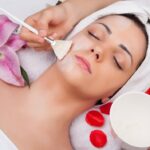
Q1: Unilever was named among the ‘dirty dozen’ for failing to exit Russia properly. Huda Beauty closed its Tmall store, marking an exit from the Chinese market. L’Occitane reported an 8 percent growth in Q3 sales but felt the impact of China’s COVID-19 exit strategy. E.l.f. withdrew from China, and Unilever Nigeria pulled out of the home care and skin cleansing categories.
Q2: Essity finalized the sale of its operations in Russia. Avon Company bid farewell to Puerto Rico and the Caribbean markets. Sephora ended its operations in Taiwan, while Etude House shut down its business in Hong Kong. Henkel sold its Russian business to local investors. Inditex received approval to sell its Russian arm to the Daher Group. Additionally, Nykaa experienced the departure of five executives, including several high-ranking officers.
Q3: The salon in Bergdorf Goodman’s penthouse shut its doors. Essity inked a deal to sell its Russian operations to New Technologies LLC. Johnson & Johnson separated from Kenvue Inc. Procter & Gamble backtracked on its commitment to purchasing wood pulp from degraded forests. Yves Rocher ceased operations in Germany, Austria, and Switzerland. Procter & Gamble’s First Aid Beauty (FAB) brand shuttered its online presence on platforms like Douyin and Tmall. Kao contemplated the divestment of several non-core cosmetics brands. L’Oreal finalised the sale of its Sanoflore.
Q4: Farfetch put Violet Grey up for sale. L’Oréal discontinued its Decléor skincare line. Unilever sold a significant portion of Dollar Shave Club to Nexus Capital Management LP. The Carlyle Group considered selling Every Man Jack. Men’s skincare brand Disco filed for Chapter 7 bankruptcy. Harvey Nichols announced the closure of its Hong Kong Central store. Natura &Co sold The Body Shop. Procter & Gamble shifted to an import-only model in Nigeria, ending its local operations. LVMH sold most of its stake in Cruise Line Holdings Co., the owner of Miami-based Starboard
Aesthetic supplies USA refers to products and equipment used in the field of aesthetic medicine and cosmetic treatments that are available for purchase in the United States. These supplies encompass a wide range of items necessary for various aesthetic procedures and treatments conducted by professionals such as dermatologists, plastic surgeons, aestheticians, and other qualified practitioners.
Examples of aesthetic supplies include:
-
Dermal Fillers: Injectable substances used to restore volume and reduce wrinkles.
-
Botulinum Toxin (Botox): Injectables used to temporarily relax facial muscles and reduce wrinkles.
-
Laser Devices: Equipment used for hair removal, skin rejuvenation, tattoo removal, and other laser treatments.
-
Chemical Peels: Solutions applied to the skin to exfoliate and improve texture.
-
Microdermabrasion Devices: Tools used for mechanical exfoliation to rejuvenate skin.
-
Microneedling Devices: Devices that create tiny punctures in the skin to stimulate collagen production.
-
Cosmeceuticals: Skincare products that contain biologically active ingredients with pharmaceutical-like benefits.
-
Sterilization and Disinfection Products: Essential for maintaining hygiene and preventing infections in clinical settings.
